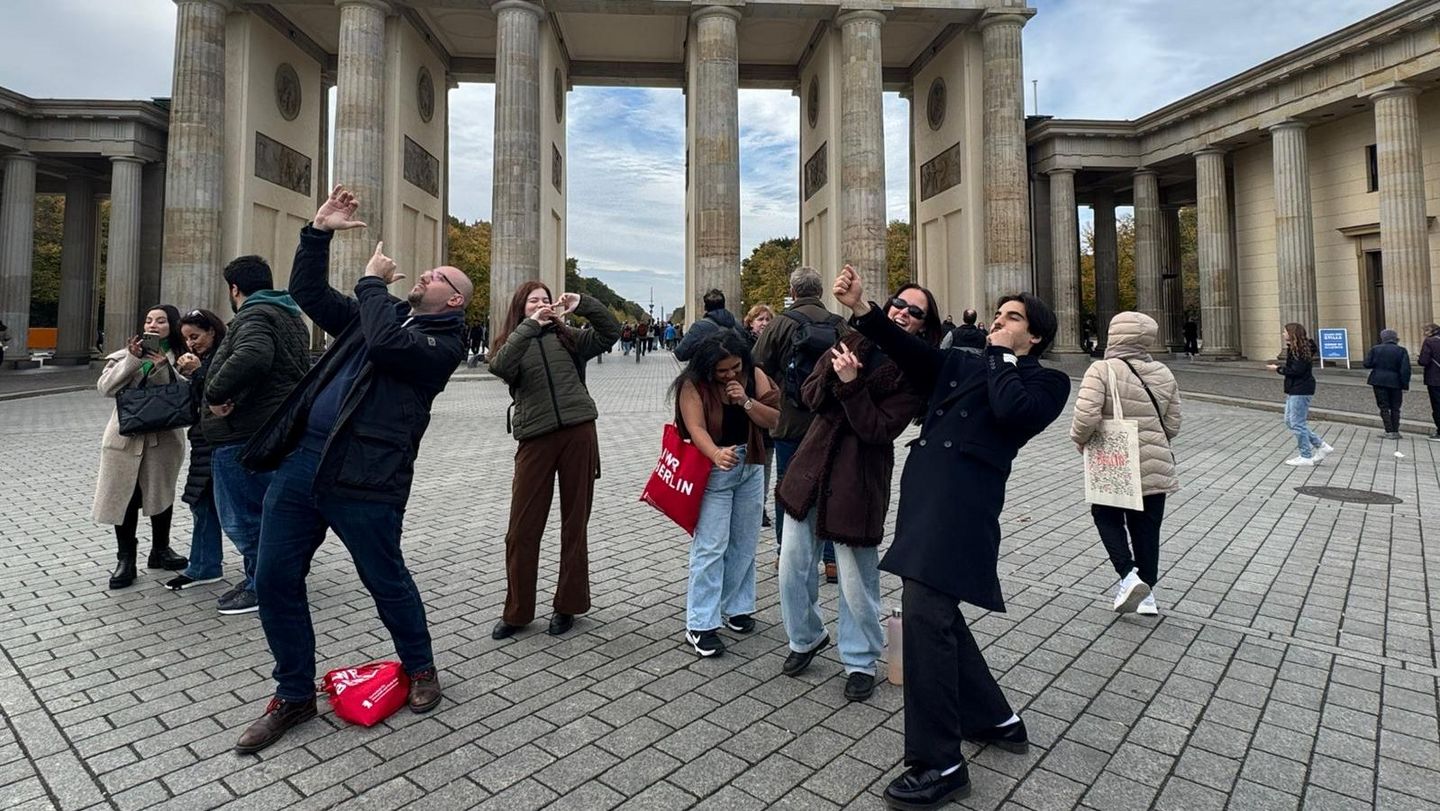Future entrepreneurs from Dublin and Helsinki
Students from Dublin City University, Metropolia University of Applied Science and HWR Berlin spent a week working together on real-life issues from the tourism sector.

As part of the Blended Intensive Programme (BIP), 15 students from Dublin City University and 15 students from Metropolia University of Applied Sciences travelled to the German capital in October last year to take part in an intensive entrepreneurial project week together with around 35 students from HWR Berlin. Under the guidance of an interdisciplinary team of five professors and teaching staff from Dublin, Helsinki and Berlin, the students worked in internationally mixed teams using the design thinking method to tackle real-life issues from the tourism sector.
Challenge: Accessibility and sustainability
The project week began with an exciting scavenger hunt through Berlin, during which participants explored urban locations and their special features in a playful way. Afterwards, the partner companies visit.Berlin (a company that offers tourist information and tickets for attractions in Berlin) and the start-up 2zero each presented a challenge that became the basis for the project week. On the one hand, access for guests with limited mobility and families with prams in Berlin needed to be improved. On the other hand, sustainable concepts had to be developed that would reduce the ecological footprint of tourists in the city while involving the local population in the travel experience.
In small, intercultural groups, the students intensively examined the needs of their target groups. They immersed themselves in the perspective of wheelchair users to plan barrier-free routes, designed pram-friendly city tours including playgrounds and quiet oases, and developed a digital footprint tracking system that playfully raises awareness and motivates visitors to travel in a climate-friendly way. Some teams also sketched out nightlife routes that give young wheelchair users easy access to Berlin's club scene.
Presentations and feedback
At the end of the week, the teams took to the stage at Pitch Day in the Business Incubation Centre at HWR Berlin in front of representatives from visit.Berlin and 2zero. In concise ten-minute presentations, they presented their prototypes and received valuable feedback.
In addition to concrete solution ideas, the focus was on learning and experiencing a culturally reflective entrepreneurial mindset: the students learned how important empathy, intercultural communication and creative problem solving are for successful start-up projects.
With this practical, international cooperation, the HWR Berlin is not only strengthening its global network, but also helping future entrepreneurs to understand the diversity of their target groups and develop innovative, culturally sensitive business models.